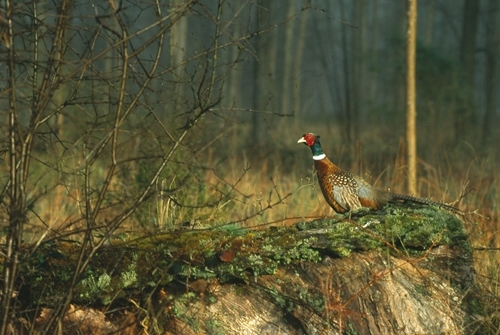
By Matt Goodall, Advisor for GWCT Wales
At the beginning of this week Natural Resources Wales, on behalf of Welsh Government, launched their 12-week public consultation on their proposals to license gamebird releasing in Wales. It is absolutely critical that everyone with an interest in shooting in Wales, whether from Wales or not, respond, offering constructive and considered responses. The number and quality of responses will be incredibly important, so please share the links with others and encourage them to respond.
We will be publishing our guidance on how to respond in the very near future, and you can respond here when ready. Alongside our guidance we will also be asking those releasing game in Wales to respond to an additional (5 -10 minute) survey to demonstrate the reality on the ground in Wales.
A GWCT blog briefly summarising NRW’s proposals and can be found here. However, this blog includes more information and detail on how responses can be productive.
It is important to recognise GWCT’s role as scientific advisors to the Aim to Sustain Partnership. Our role is to inform policy through our scientific research. GWCT views released game shooting in Wales as a very important contributor to Welsh environmental conservation, and there is the potential to deliver a net biodiversity gain on every shoot in Wales. If shooting was banned outright this positive work would all be lost in a move which would be hugely detrimental to the Welsh countryside.
It is also important to note that this consultation is not considering a ban. NRW state that “We should make it clear that the Minister has not asked for gamebirds releases to be stopped – but to find a way that balances the needs of all stakeholders and the environment itself”.
However, as Welsh Government banned shooting on Welsh Government owned land in 2018 (despite NRW advising against it) and outlined that they do not support the shooting of live quarry as a leisure activity, it is no wonder that the proposal to permanently move pheasant and red-legged partridges to Schedule 9 of the Wildlife and Countryside Act 1981 is extremely concerning. This move would make it illegal to release these gamebirds except under licence.
GWCT would prefer to see continued self-regulation for released game shoots in Wales. As an organisation which produces evidence and champions scientific research, we would remind NRW that they are evidence-led and currently, despite their rapid evidence assessment, there is little evidence available to suggest that released game shoots in Wales are damaging the environment. Dr Joah Madden’s Evidence Report 680 produced as part of this consultation states “This review makes it clear that there is currently little reliable evidence about the scale, extent, history or methods of gamebird release and management in Wales. The estimates that I can calculate are subject to large errors, of around 2.5 fold and the extrapolations that I make are often based on restricted and perhaps skewed data”.
Therefore, GWCT do not believe that the proposal to license gamebird release is currently a proportionate response from NRW. It would be much better to commission research to determine if there is, or is not, a problem associated with gamebird releases in Wales. We will be stating as much in our response.
Whilst GWCT research demonstrates the benefits of good game management, whereby shoots can deliver a net gain to biodiversity, we need more evidence to demonstrate compliance with the Code of Good Shooting Practice and GWCT sustainable stocking densities in Wales. That is not to say it is not happening, just that there is no available data. To help GWCT collect this evidence we are asking those that release pheasants and red-legged partridges in Wales to fill in our short survey which will be produced alongside our guidance. Please look out for this survey and respond in the very near future.
If however, NRW conclude from this consultation that their proposals are proportionate and they go ahead with their licensing proposals, GWCT are reassured that NRW intend to use the GWCT’s sustainable releasing guidelines, which are based on peer reviewed science, as the basis for their licences. These guidelines are written into The Code of Good Shooting Practice, which is endorsed and supported by all the Countryside Organisations, and they underpin sustainable gamebird management in the UK.
NRW proposals in brief:
NRW propose to move pheasant and red-legged partridge onto Schedule 9 of the Wildlife and Countryside Act 1981 which would make it illegal to release these gamebirds except under licence. Alongside this move, they are proposing to enable pheasant and red-legged partridge release under a General Licence (a licence which does not need to be applied for, and does not incur any cost) which would require those releasing to do so following the GWCT’s sustainable release guidelines. However, the proposed General Licence would not apply to the majority of designated sites i.e. SSSIs and EU designated sites (SPAs and SACs) and those wishing to release in these areas, and within a 500m buffer of these sites, would require a specific licence from NRW to do so.
General Licences by their nature do not require a charge. Furthermore, the specific licences for designated sites and their 500m buffers also do not incur a cost if releases adhere to the proposed stocking densities. However, if shoots feel they cannot operate within suggested release densities, regardless of where they are located, they can apply for a specific licence to release at higher densities which would incur a cost-covering charge from NRW.
Please look out for GWCT’s guidance on responding to the consultation in the very near future. It is important that you give your reasoning behind your position and consider whether you deem NRW’s proposals to be proportionate, workable and sustainable.